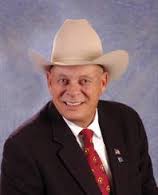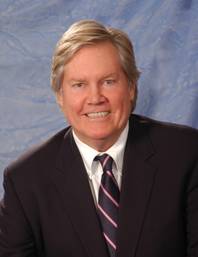By merging Caesars Acquisition Co. (which holds most of the goodies) with Caesars Entertainment, the conglomerate may be finally able to ring the curtain on its bankruptcy. It’s been a long-running show, often  replete with elements of farce. What seems to have brought resolution was the offer to Caesars Acquisition stockholders of 1.6 shares in Big Caesars for every share they hold in Little Caesars. With Judge Benjamin Goldgar having gaveled $10 million into oblivion, Caesars now carries ‘only’ $8 million in long-term debt. However, the effects of its adventure in Chapter 11 are far-reaching. The company lost $435 million last quarter, blowing out Wall Street projections, mostly due to restructuring costs, and revenues were up only 3%. At this point, with the bankruptcy largely in the rearview mirror, it’s time for Gary Loveman to keep his promise to step down as chairman of the board. His reign has been a near-unmitigated catastrophe and almost any new COB would be an improvement.
replete with elements of farce. What seems to have brought resolution was the offer to Caesars Acquisition stockholders of 1.6 shares in Big Caesars for every share they hold in Little Caesars. With Judge Benjamin Goldgar having gaveled $10 million into oblivion, Caesars now carries ‘only’ $8 million in long-term debt. However, the effects of its adventure in Chapter 11 are far-reaching. The company lost $435 million last quarter, blowing out Wall Street projections, mostly due to restructuring costs, and revenues were up only 3%. At this point, with the bankruptcy largely in the rearview mirror, it’s time for Gary Loveman to keep his promise to step down as chairman of the board. His reign has been a near-unmitigated catastrophe and almost any new COB would be an improvement.
In another blow to the bottom line, Caesars will have to pony up $44 million to Nevada Power for the privilege of buying power on the open market. It’s a pain in the butt for Caesars but comes with benefits for ordinary Nevadans. The $44 million is intended to offset the rate increases that (theoretically) occur otherwise and to help shut down the Reid Gardner coal-fired plant, which can’t stop polluting Nevada skies soon enough.
* “I just wanted to have the conversation more than anything,” said Assemblyman Jim Wheeler (R, below) of his proposal to lower the gambling age to 18. He says he was stumped for an answer when a military veteran wanted to know why he risked his life for his country but couldn’t place a simple wager in a Nevada casino. “Everyone’s happy with 21 years of age,” said a dismissive Nevada Gaming Commission Chairman Tony Alamo, calling Wheeler’s draft bill, “a solution for a problem that doesn’t exist.”
Part of what gives regulators pause is the thought that, if 18-year-olds can play casino games, what’s the prevent them from being served  alcohol. (Well, the casinos *could* card them, but that’s evidently been deemed too onerous.) Wheeler made the trenchant point that customers should be getting carded anyway but I doubt if anyone’s listening. Certainly not the Las Vegas Review-Journal‘s Richard Velotta, who primly tut-tutted about the Wheeler proposal, even after acknowledging that legal gambling age is a crazy quilt of limitations in the U.S. For instance, you can play the ponies at the age of 18 in Louisiana but are restricted to bingo in Florida. S&G thinks that Wheeler is on the right side of the issue, bluenoses be damned. At least debate the matter, don’t pretend it’s a pig in a poke.
alcohol. (Well, the casinos *could* card them, but that’s evidently been deemed too onerous.) Wheeler made the trenchant point that customers should be getting carded anyway but I doubt if anyone’s listening. Certainly not the Las Vegas Review-Journal‘s Richard Velotta, who primly tut-tutted about the Wheeler proposal, even after acknowledging that legal gambling age is a crazy quilt of limitations in the U.S. For instance, you can play the ponies at the age of 18 in Louisiana but are restricted to bingo in Florida. S&G thinks that Wheeler is on the right side of the issue, bluenoses be damned. At least debate the matter, don’t pretend it’s a pig in a poke.
With e-sports hot on the rise, the age restriction is going to leave a lot of prospective casino customers on the outside looking in. Ironically, e-sports companies are migrating to … Nevada. Heck, UNLV even has an e-sports lab, for Pete’s sake. Considering that college-age students would constitute the “sweet spot” for e-sports, keeping them off the casino floor seems perverse. It also is going to make cracking the Millennials’ code that much more difficult.
* A snowbound opening week held Rivers Casino in Schenectady to a $3 million gross in its opening frame. Nonetheless, players wagered $23 million at the slots and $4 million on table games. In a Kremlinesque  official statement, Rivers put the best face on it: “The first days of operation at Rivers Casino & Resort Schenectady have been extremely successful, and we’re very pleased with feedback we’ve heard from our guests and the enthusiasm shown by the community. Our dedicated team members are continually making improvements to operations and the guest experience in these opening days, and the excitement exhibited by our guests continues to drive us to always provide a superior entertainment experience.” In other words, there’s still some work to be done.
official statement, Rivers put the best face on it: “The first days of operation at Rivers Casino & Resort Schenectady have been extremely successful, and we’re very pleased with feedback we’ve heard from our guests and the enthusiasm shown by the community. Our dedicated team members are continually making improvements to operations and the guest experience in these opening days, and the excitement exhibited by our guests continues to drive us to always provide a superior entertainment experience.” In other words, there’s still some work to be done.
* Gov. Chris Christie (R) brokered a compromise between Atlantic City and leading corporate citizen Borgata. In return for the city issuing bonds to repay MGM Resorts International for some, uh, overoptimistic property-tax assessments, Borgata will waive all but $72 million of the $165 million it is owed. Around here we call that progress.
* “Of course it happens now. They are doing it in the hotel rooms, they are doing it on the casino floor, they are doing it in restaurants, bars. Very few people actually do marijuana with some kind of smoke. There are vapes, there are edibles, there are all kinds of ways. It is going on and it has been going on for years.” Thus spake Las Vegas state Sen. Tick “Maharaja of Marijuana” Segerblom of recreational pot use. He wants the state to give loco weed preeminence in its efforts to lure  visitors to the Silver State. This is a bit of a problem given the casino industry’s no-tea-here stance, which is why Sen. Tick is proposing a look-the-other-way response. He also wants to amend the state’s current law, which restricts pot smoking to your domicile to allow for dedicated pot-use venues, “like a literal Amsterdam street.”
visitors to the Silver State. This is a bit of a problem given the casino industry’s no-tea-here stance, which is why Sen. Tick is proposing a look-the-other-way response. He also wants to amend the state’s current law, which restricts pot smoking to your domicile to allow for dedicated pot-use venues, “like a literal Amsterdam street.”
Refreshingly candid, Segerblom positions his bill as a way for casinos to capture revenue that might otherwise go up in smoke. He’s also calling the state out on its sudden onset of propriety when marijuana is the topic. “What we do is we sell sex, we sell sin. We make things sound very exotic. So that is how we got gambling and that is how we’ve got everything we have.” Segerblom oversteps only when he implies that pot is an addictive substance: That’s the wedge issue favored by the (failed) War on Drugs. Personally, I don’t use loco weed: I can’t stand the smell and think it makes users act stupidly. But the will of the people is clear and who am I to stand in their way? Go Tick!

